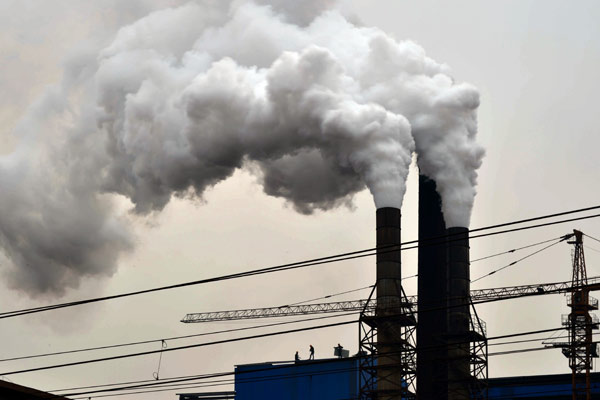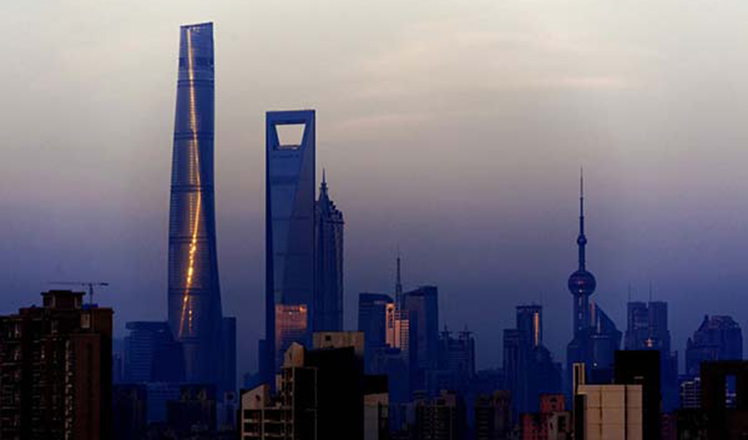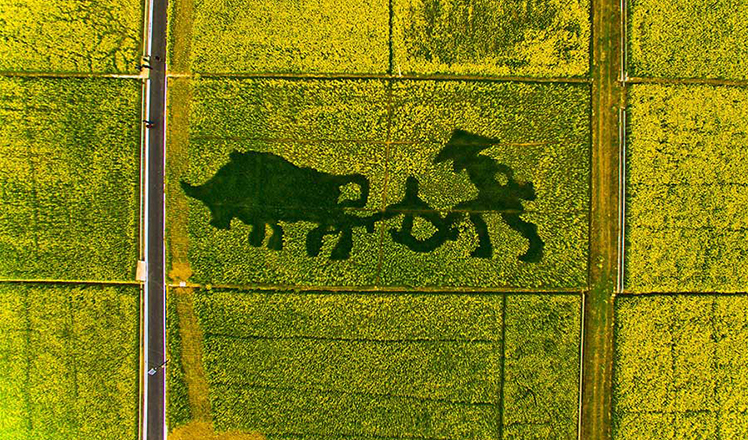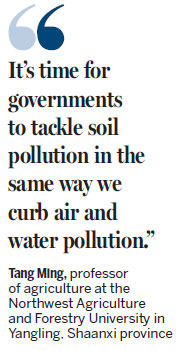China vows to root out soil pollution
Updated: 2016-03-18 08:07
By Zheng Jinran(China Daily)
|
||||||||
 |
|
Smoke is emitted from chimneys at Gengchen Casting Materials Corp in Jinan, Shandong province, as lingering smog shrouds the city. [Photo/Xinhua] |
New binding targets
China's war on pollution began in earnest in 2013, when an action plan was published to tackle air pollution, followed up last year by measures targeting contaminated water.
With the upcoming action plan on soil pollution, the country is taking steps to further raise the general quality of the environment by 2020.
Having promoted agricultural technologies in her village for more than 20 years, Qiu Xinghong, a national legislator, is calling for thorough surveys to be conducted into rural soil pollution, and for systematic efforts to control the deterioration of the land.
"Contamination along some rivers and in farmland has made the soil black and infertile," said the 43-year-old from Jiexi county in Guangdong province, who is deputy head of the county's agricultural technologies promotion center and an NPC deputy.
Because the excessive use of chemical fertilizers and pesticides has contaminated the soil, Qiu expends time and effort every year to show farmers how to apply the correct amount to their land.
In addition, a number of small workshops that produce preserved plums, a local delicacy, and factories that make wires and cables have also discharged untreated sewage directly into local rivers, she said.
"The (provincial, city and county) governments have shut down a lot of polluting factories, but there's still a lot to do with regard to the excessive use of fertilizers and pesticides," she added.
Qiu was not the only deputy at the recent two sessions to call for greater efforts to control soil pollution.
Tang Ming, a CPPCC National Committee member and professor of agriculture at the Northwest Agriculture and Forestry University in Yangling, Shaanxi province, also submitted a proposal calling for tougher controls.
He cited data from the environmental and agriculture ministries that show that up to 2009, heavy-metal contamination of the soil caused reductions in grain yields and resulted in a loss of 2 billion yuan ($307 million), and that industrial wastewater was used to irrigate 1.4 million hectares of farmland, causing further contamination.
"Soil contaminated by heavy-metals poses a further risk to human health via the grain and polluted water," he said.
"It's time for governments to tackle soil pollution in the same way we curb air and water pollution."

 These university canteen dishes will blow your mind
These university canteen dishes will blow your mind
 Eslite bookstore story reads like a page-turner
Eslite bookstore story reads like a page-turner
 World's biggest computer and software fair kicks off in Germany
World's biggest computer and software fair kicks off in Germany
 Aerial view of cole flower fields presents unique pastoral charm
Aerial view of cole flower fields presents unique pastoral charm
 Largest blue diamond to appear at auction
Largest blue diamond to appear at auction
 Journalists from around the world at Li's news conference
Journalists from around the world at Li's news conference
 Google's AlphaGo defeats Go grandmaster
Google's AlphaGo defeats Go grandmaster
 Emperor's seal set for auction in Hong Kong
Emperor's seal set for auction in Hong Kong
Most Viewed
Editor's Picks

|

|

|

|

|

|
Today's Top News
Chinese biopharma debuts on Nasdaq
What ends Jeb Bush's White House hopes
Investigation for Nicolas's campaign
Will US-ASEAN meeting be good for region?
Accentuate the positive in Sino-US relations
Dangerous games on peninsula will have no winner
National Art Museum showing 400 puppets in new exhibition
Finest Chinese porcelains expected to fetch over $28 million
US Weekly

|

|








